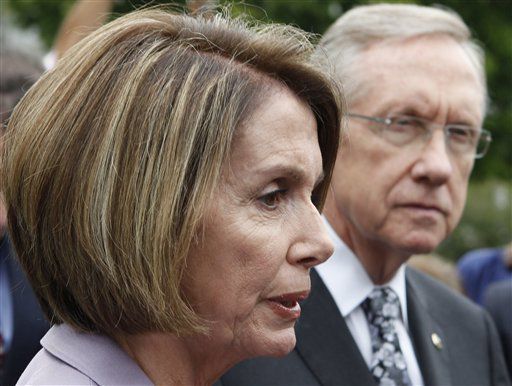Colorado Dems’ hostile takeover of RTD an attack on democracy | HUDSON

Miller Hudson
I visited Washington, D.C. regularly during the 1990s, discussing nuclear waste disposal issues in Congressional offices. When Newt Gingrich’s 1994 House rebellion placed Republicans in the majority for the first time in 40 years, there were few tears shed among progressive and Democratic lobbyists. Long-reigning committee chairs, like Michigan’s John Dingell, had been giving arrogance a bad name for decades. These Congressional bulls controlled the policy agenda. Gingrich stripped them of their palatial offices, treating them just as badly as they had been by Democrats. Many, including Colorado’s own Pat Schroeder, departed for the Capitol exits in 1996. The Republican innovation of selling chairmanships to their biggest fundraisers, a practice Ken Buck decries in his confessional book “Drain the Swamp,” hasn’t proved an improvement over Democrats’ reliance on seniority.
It has only taken Colorado Democrats in the legislature a little more than a decade of majority dominance to acquire a similarly sneering disregard for competing opinion. Just last week, during debate on enabling legislation for needle-exchange facilities, Republican suggestions that it might be a worthwhile idea to establish a perimeter prohibiting these storefronts and their clients from proximity to schoolgrounds were summarily rejected. Colorado has maintained separation for liquor license outlets from schoolyards since the repeal of prohibition, 90 years ago. I strongly suspect even Democratic parents think this would be a wise precaution — but not the bill sponsors who aggressively advanced the necessity for wide-open access into every neighborhood.
Stay up to speed: Sign up for daily opinion in your inbox Monday-Friday
This week a cabal of Boulder and Broomfield legislators dropped a promised bill (HB24-1447) to repeal the Regional Transportation District elected board in favor of a far smaller governing board, reduced from 15 to five elected and an equal number of appointed members. In 2024, when the Democratic presidential ticket is campaigning against the threat MAGA Republicans pose to democracy, why are Colorado’s Democratic legislators threatening a 44-year history of elected governance at RTD? A landslide of a majority, 83%, of voters approved an elected Board in 1980 replacing an appointed board replete with venality, incompetence and evident corruption.
The board’s performance has been noteworthy. Denver’s bus system was the first in the nation to require wheelchair lifts on the entire fleet, leading to a nationwide standard in the Americans with Disabilities Act. RTD has also constructed the largest light-rail system in the entire country from scratch, winning several awards as the best transit operator in America. Yes, there have been ups and downs over the years, yet RTD is recovering from a COVID downturn in ridership while reducing fares without raising taxes.
Nationally, Democrats have reviled the Supreme Court decision repealing Roe v. Wade after half-a-century. So, why are Colorado Democrats attempting to reverse democratic representation for taxpayers at RTD? It’s a theft, dressed up and whitewashed as concerns for the environment, meeting climate change goals, assuring diversity and promoting transit-oriented development — all challenges the elected board has creatively and diligently addressed.
Nonetheless, legislative leadership has persuaded many otherwise progressive organizations to endorse this hostile takeover. HB1447 is a brazen political coup which the Senate sponsor, Faith Winter, described in a call with RTD board members as her intention to “take buses from Denver and move them to Broomfield.” Those buses traveling Denver streets carry the same essential workers for whom we were banging pots and pans in appreciation of the risks they were exposed to just three years ago.
In addition to downsizing the board from 15 to just five elected members, this shrinkage will also deny representation to the diverse communities most dependent on transit access. The five remaining districts proposed in HB1447 will be nearly as large as Congressional districts. What kind of candidates do you think can raise the hundreds of thousands of dollars required to campaign in them? And who will fund their campaigns? Furthermore, RTD has provided a proving ground for first-time political candidates, many of whom moved on to greater responsibility. This is especially true for the much-needed voices of African-American and Hispanic candidates. Rick Garcia, who recently retired from the governor’s cabinet and previously served on the Denver City Council, honed his skills at RTD, as did Henry Solano, now district attorney in the 3rd Judicial District. On the Republican side, Jon Caldara, now at the Independence Institute, and Norma Anderson, who went on to serve as House and Senate majority leader, did the same. Former Mayors Casey Hayes of Commerce City, Mary Blue of Longmont, Vi June of Thornton and Bob Tonsing of Littleton finished their public service careers at RTD.
RTD has a FasTrack savings account that serves as a capital reserve for system completion. The “Boulder brigands” have their covetous eyes on looting nearly $200 million to provide a state match for the federal grants they will be seeking to construct a Front Range rail line. I also wish to see this project move forward. It may be the only way the rail link initially included in the FasTrack plan and its economic benefits can be delivered. Boulder commuters have reason to be aggrieved RTD has been unable to raise enough dollars to build out its original plan. Rather than seeking cooperation from RTD, which has been offered (even outlined in a joint white paper prepared with Front Range rail), sponsors have decided it will be easier and more efficient to simply snatch taxpayer funds after they emasculate the elected board.
The draft bill includes a controversial “safety clause” that prevents citizens from recalling the legislation in a referendum — so much for democracy! Sponsors recognize what they are proposing is unpopular. Despite that, they hope they can remove the RTD board and voters will shrug their shoulders. They’re dead wrong about that. I discovered early on as a legislator that transportation is the genuine “third-rail” issue for many voters. Just 1% of RTD’s funding comes from the state budget and only another 6% from the farebox. District taxpayers keep our transit system afloat, and they will not take kindly to being denied the right to select its management. Several Front Range Passenger Rail Commission members are aghast at the legislature picking this public fight when they are competing against two dozen other projects that aren’t waging a governance battle. The bill assigns DRCOG a role in making appointments without its consent. Supporters running for reelection should ask themselves whether voters they apparently believe are too stupid to elect the right kind of RTD directors are also dumb enough to return them to the Capitol.
Even more baffling is the considerable pressure Gov. Jared Polis, who supports this repeal legislation, is placing on the Front Range Rail Board to send a sales tax increase to voters this November. It isn’t clear whether a service plan explaining what taxpayers would be buying will be ready before our 2024 ballots arrive. This attack on democracy is brought to us by the same brain trust that crafted Proposition HH as a property tax remedy last year. An equally brain-dead proposal was an attempt to impose a statewide housing code in a strong, local control state without involving local government leaders. After repeatedly slapping voters across the face with their superior wisdom, the chances of success at the ballot box feel slim to none. A recently adopted companion bill (SB24-184) mandates a Joint Powers Agreement to promote the Front Range rail project, making further muscle flexing unnecessary. The fight to protect democracy is a permanent struggle between those who have faith in their neighbors and those who question their wisdom.
Miller Hudson is a public affairs consultant and a former Colorado legislator.











